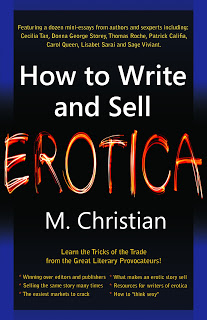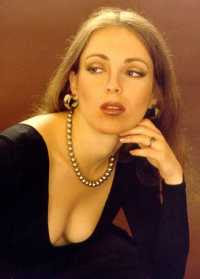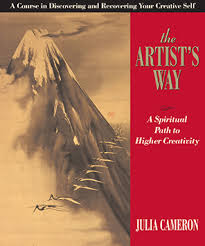(a hearty thanks goes out to the wonderful K.D. Grace, on whose blog this piece first appeared)
Thinking Outside Your Box…
Or Writing Isn’t Always About Writing
Sure,
we may all want to just cuddle in our little garrets, a purring pile of fur in
our laps, leather patches on our sleeves, a pipe at the ready, and do nothing
but write masterpieces all day and night – with periodic breaks for
binge-drinking and soon-to-be legendary sexual escapades – but the fact of the
matter is that being a writer has totally, completely, changed.
I’m not just talking about the need to be a marketing genius and a publicity
guru – spending, it feels too often, more time tweeting about Facebook, or
Facebooking about tweeting, than actually writing – but that authors really
need to be creative when it comes to not just getting the word out about their
work but actually making money.
A lot of people who claim to be marketing geniuses and publicity gurus will say
that talking about you and your work as loud as possible, as often as possible,
is the trick … but have you heard the joke about how to make money with
marketing and PR? Punchline: get people to pay you to be a marketing genius
and/or a publicity guru. In short: just screaming at the top of the tweety lungs
or burying everyone under Facebook posts just won’t do it.
Not that having some form of presence online isn’t essential – far from it: if
people can’t find you, after all, then they can’t buy your books. But there’s a
big difference between being known and making everyone run for the hills – or
at least stop up their9 ears – anytime you say or do anything online.
Balance is the key: don’t just talk about your books or your writing – because,
honesty, very few people care about that … even your readers – instead fine a
subject that interests you and write about that as well. Give yourself some
dimension, some personality, some vulnerability, something … interesting, and
not that you are not just an arrogant scream-engine of me-me-me-me. Food, travel,
art, history, politics … you pick it, but most of all have fun with it.
Forced sincerity is just about as bad as incessant narcissism.
Okay, that’s all been said before – but one thing a lot of writers never think
about is actually getting out from behind their computers – or out of their
garret to tie in the opening to this. Sure, writing may far too often be a
solitary thing but putting yourself out there – in the (gasp) real world – can
open all kinds of doors. I’m not just talking publicity-that-can-sometimes-equal-book-sales,
either: there’s money to be made in all kinds of far-too-often overlooked
corners.
Not to turn this to (ahem) myself: but in addition to trying to do as many
readings and appearances as I can manage … or stand … I also teach classes.
One, it gets me out of the damned house and out into the (shudder) real world,
but it also, hopefully, shows people that I am not just a writer. Okay, a lot
of what I teach – from sex ed subjects to … well, writing – has to do with my
books and stories but it also allows me to become more than a virtual person.
By teaching classes and doing readings and stuff-like-that-there I’d made a lot
of great connections, met real-life-human-beings, and have seen a considerable
jump in book sales. Now don’t let me mislead you that this has been easy: there
are a lot of people out there who perform, teach, lecture, what-have-you
already so often it means almost starting a brand new career … scary and
frustrating doesn’t even begin to describe it. But, in the end, the rewards
have more than made up for the headaches.
Now you don’t have to read, or teach, or whatever: the main point of this is to
think outside of your little writing box. If you write historical fiction then
think about conducting tours of your city and it’s fascinating secrets and back
alleys; if you write SF then think about starting a science discussion group –
or even joining one. Like art? How about becoming a museum docent? Write
mysteries? Then organize a murder party – or just attend one.
You don’t have to make you and your work the focus of what you are doing. As in
the virtual world, connections can come from all kinds of unexpected directions
– which can then even lead to new opportunities … both for your writing but also
as a never-before-thought-of-cash stream.
My classes and lectures and whatever have not just brought be friends, book
sales, totally new publicity venues, but also ($$) cash!
It’s also a great way of balancing my inherent shyness with the need to get out
there and be a person – which always helps not just sell whatever products you
happen to be selling but can also be extremely good for (not to get too
metaphysical or something) the soul: sure, we all might want to be left alone
in our little garrets to writer, write, write but the fact is that writing can
be very emotionally difficult …. to put it mildly. But thinking outside of
your box you can not just reach new, potential, readers but also possibly find
friends and an unexpected support system.
Teaching may not be for you, readings may not be for you … but I’m sure if
you put your wonderfully creative mind to it I’m sure you can think of a way to
not just get the word out about your work but also enrich yourself as a person.
It might be painful at first, but – believe me – it’ll be more than worth it.









